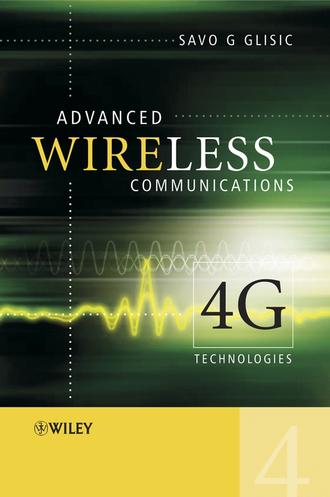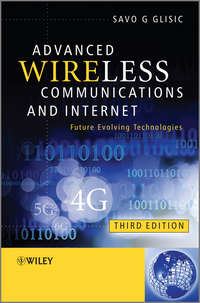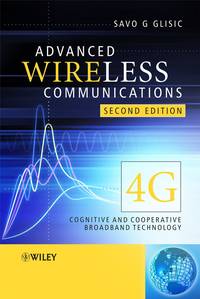
Полная версия
Advanced Wireless Communications
The wireless community is on the verge of the standardization of fourth generation (4G) systems. Research has generated a number of solutions for significant improvement of system performance. The development of enabling technologies such as adaptive coding and modulation, iterative (turbo) decoding algorithms and space-time coding, means that industry can now implement these solutions. Advanced Wireless Communications: 4G Technologies focuses on the system elements that provide adaptability and reconfigurability and discusses how these features can improve 4G system performance. There are several different systems comprising 4G, including adaptive WCDMA (Wideband Code Division Multiple Access), ATDMA (Adaptive Time Division Multiple Access), Multicarrier (OFDMA) and Ultra Wide Band (UWB) receiver elements. This book provides a comparative study of these technologies and focuses on their future co-existence. Topics covered include: Space Time Coding, including discussions on diversity gain, the encoding and transmission sequence, the combining s cheme and ML decision rule for two-branch transmit diversity scheme with one and M receivers. Ultra Wide Band Radio, UWB multiple access in Gaussian channels, the UWB channel, UWB system with M-ary modulation, M-ary PPM UWB multiple access, coded UWB schemes, multi-user detection in UWB radio, UWB with space time processing and beam forming for UWB radio. Antenna array signal processing with focus on Space-Time receivers for CDMA communications, MUSIC and ESPRIT DOA estimation, joint array combining and MLSE receivers, joint combiner and channel response estimation and complexity reduction in the wide-band beam forming Channel modeling and measurement, adaptive MAC, adaptive routing and TCP layer are also addressed. This book will supply the reader with a comprehensive understanding of the relationship between the systems performance, its complexity/reliability and cost-effectiveness. It gives an insight into the impact of existing and new technologies on the receiver structure and provides an understanding of current approaches and evolving directions for personal and indoor communication.






